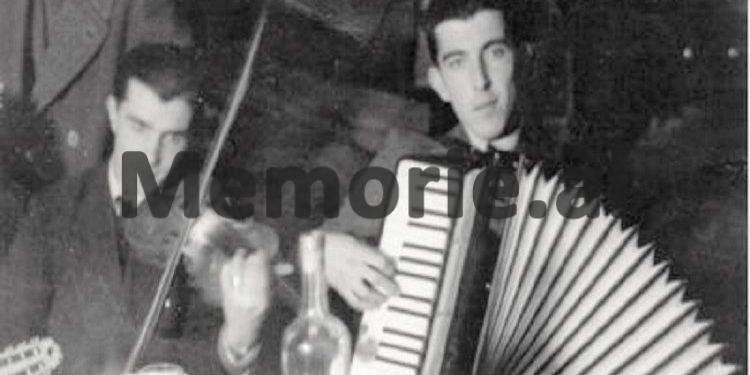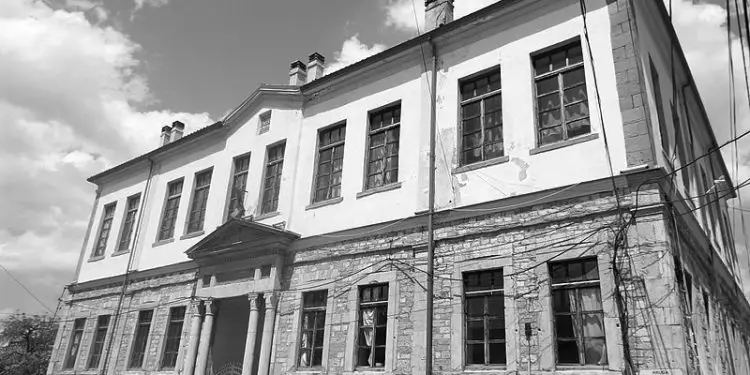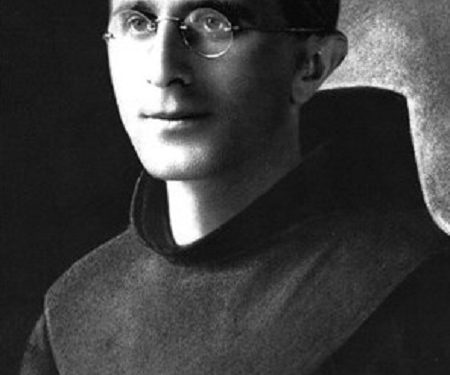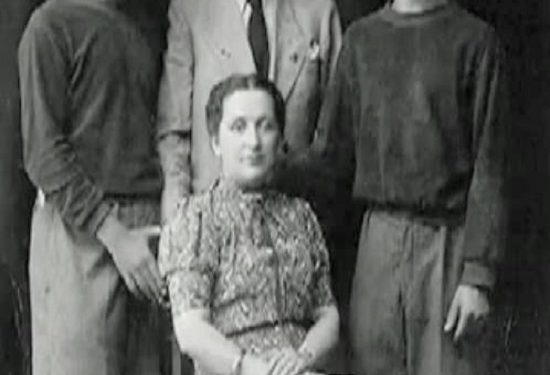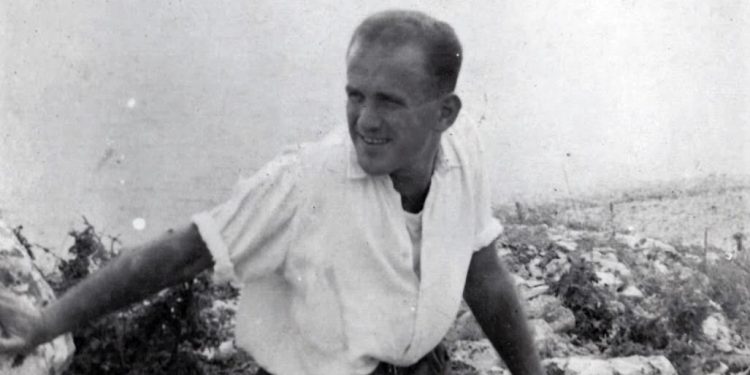By Zef Zorba
– The unknown story of the tragedy “Judas Maccabe”, by Father Gjergj Fishta, with original music by Preng Jakovo and directed by Zef Zorba, which was the first and last dissident play in communist Albania”.
Memorie.al / On November 28, 1945, the philharmonic group of the House of Culture and Art in Shkodër presented the premiere of the tragedy “Judas Maccabe” by Father Gjergj Fishta, with the original music by Preng Jakovo and directed by Zef Zorba. The artistic as well as political courage to stage “Judën” at that time found the support and kindness of everyone, of course in the first place, for the artistic value of the work and especially for its boundless patriotic outlook. This is because it was well known that it would sound, as it did, an open protest against the regime, oppression and robbery.
Under the sky of euphoria created by the victory over fascism, after only a few months, cloudy clouds appeared, more and more ghastly, more and more threatening. The Yugoslav bosses, with the shameless approval of our leaders at the time, were adding suffocating life like mushrooms to their emissaries, who, with unparalleled arrogance, commanded the arrogant and disrespectful everywhere, from the local bodies to the top of the government. Every day, not only goods, but also food and even timber cut indiscriminately in our forests were kidnapped and sent to Yugoslavia.
The spectacle of such robberies was both sad and terrifying. Above all, to this violence, you are adding the resentment of repeating the captivity of the martyred Kosovo. Hundreds of thousands of Kosovars were arrested, and the Serbian emissaries, under the pretext of sending them to Ulcinj, massacred them on the way, even worse than the German Nazis. Who wanted to see me, who could see me, saw me? Brazen betrayal, he was selling the nation for positions, for 30 groshas. Disappointment was turning into gloom, gloom into psalm. The people of Shkodra and its intelligentsia could not remain silent.
Spontaneous, but protected by unfounded findings, the gloom was taking on ever-greater proportions, the revolt became the voice of the day and began to explode into open or angry denunciations. Such ferment took concrete form in the idea that arose among the intellectuals, gathered around the House of Culture, for staging the tragedy “Judas Maccabe”. As it is known, the final act, an accusation against every invader and every betrayal, against the motherland, surprisingly suited the waves of the political situation, through which the nation was being shaken.
In addition to enthusiastic support from the people and intellectuals, this idea was approved by the educational bodies of the district. We were told then (we have not documented this), that the opinion of the Ministry of Education was also sought and that the minister at the time, Sejfulla Malëshova, a declared supporter of Fishta, had given unconditional approval.
But approval was one side of the coin. Difficult, even very difficult, were the problems of implementation. And in the first place, almost insurmountable, there was the problem of stage music, for chorales and for any necessary “solo”.
It was the beginning of September and the premiere should have been given on November 28, this for the double look that that date symbolized, with the protesting intention that we wanted to give it.
The platform we were preparing with the urge, the deeper we got into the problems, was filled with daunting requirements, which became more and more closely related, one to another: the appointment of suitable actors, the gathering of choristers, scenography, costumes, rehearsals, etc., etc., and especially music.
They knew that, when the Franciscan College showed “Judas”, in 1916 and back, for the musical parts, they adapted chorales, as well as “a solo”, from world lyric operas. Also, we knew that Father Martin Gjoka was busy creating a lyrical opera based on that text. We consulted with the Franciscans headed by Father John Shllaku, who, I greatly appreciate the work we had undertaken.
But for the musical side, he could not help us, because Father Martin had left the opera unfinished. The meetings with Father John were very valuable to us, for the advice he gave us, as well as for the material help, he provided us: props (shields, swords, etc.), as well as over 30 copies of the tragedy, from the Franciscan printing press. But, another goal of ours then, was Prekë Jakova.
He was the only one who could deal with stage music. But at that time, Preka and his family were isolated in a prison house in Shkodra, because his brother, Ndoci, was on the run. We forcefully raised their release, even in front of the superior bodies, we did not hesitate to lay down our “Aut-Auit”: either Preka, or the work was not staged. We succeeded, because Preka was released, but only him. Now that the music milestone was over, he had to get to work, fast.
We found concrete help for everything, from all the intellectuals of the city, of whom the closest were to us at all times: Qemal Draçini, Kole Luka, Filip Ndocaj, Injac Zamputi, Vehbi Bala, Tefe Gjonej, Myzafer Pipa, Paulin Pali, Ramadan Sokoli, Muhamet Ademi, and many, many others, (most of them later drowned in prisons, were executed, exiled, or were persecuted politically).
Very valuable help was given to us by the Directorate of the State High School, which mobilized the best students, which we needed, for the formation of the choir. Among those who willingly submitted to possible trials, we should mention: Safet Sokoli, Tish Daija, Ndoc Kujxhija, Tonin Bedeni, Gjyljjana Nenshati, Terezina Pali, Ana Daja, Neta Cepi, Gac Luli and, above 30 other boys and girls.
For the division of roles, the problem appeared reversed. We were looking for 10-12 people, and we were offered dozens, experienced or new actors, but all of them, full of enthusiasm. The main requirement was that not only did they have acting skills, but someone also had to sing as a soloist and all as choristers. Of course, they also needed to have a suitable physique for the role.
Thus, we formed a troupe composed of: protagonist Lec Bushati and Pjeter Gjoka, chief fighters, Loro Kovaçi, Lec Shllaku, Qazim Lila, Gac Çuni, Leo Prela, Jonuz Tuli, Pjeter Gjergji, Pjerin Ashiku, Česk Vuksani, and a child, who it was Alfred Krroqi. In addition to the reciting role, we would have Gac Çuni, Pjeter Gjergji, Leo Prela and, especially Pjeter Gjoka, who, in addition to acting skills, was also a proven tenor-soloist, many times before.
In addition to recitative rehearsals, which sometimes lasted late into the night, Prekë Jakova had one of the most difficult tasks.
Within a short time, hours and days flew by, he had to face heavy life tasks, for himself and for his family, but above all, he had to play nine pieces and at the same time, teach them to the choir soloists.
The worst thing was that Preka did not have a piano in his house. Ndoc Shllaku had one like that, so Preka, day or all night, could sit and compose, or better to say, come to the hulki, everything was polished during the day. Another difficulty was that there was no pianoforte in the theater hall.
So, who knows how many times, we had to transfer the group of choirs, to learn the parts at Radio-Shkodra, thanks to the interest of the director at the time, Kolë Luka, who opened the doors for us, at any hour? After many efforts, we were provided with a pianoforte, so now we could do the rehearsals in our living room. This was a good achievement because, at the same time, we had the opportunity to do stage rehearsals.
And these presented their own difficulties, sometimes almost demoralizing: Within a relatively small stage, without annexes, the scenes had to be stored, they had to move with dozens of actors and choruses, and moreover, their postings had to be matched as well. with choral groups. Then, keeping calm was almost impossible, since most of them were young people full of life. In many cases, the direction had to be done by shouting, even shouting and threatening.
But we must say that our shouts were often excessive, because the young people quickly obeyed and prominently implemented the directives of the stage or the music. Another problem, and not a small one, was the scenography and clothing. The screenwriter was looking for paints and fabric: Česk Vuksani, who was in charge of props, was looking for different kinds of fabric.
The actors themselves were interested in their own clothes and equipment, while for those of the choristers, the town’s tailors took over the construction, even without remuneration. Likewise, all the participants spontaneously engaged in whatever work they presented, who with the electrical network, with the props, with the arrangement and cleaning of the salon, with the printing, and the Radio director himself, with the sale of tickets.
The contribution each person made was indescribable. Everyone was involved in great zeal, to make the show come out as good and worthy as possible, because everyone, some with expressions and some with silence, were fully aware that, in that forge, yes, the first powerful dissidence of the intelligentsia and the people of Shkodra was forged. All of us, as if we were alienated in those days.
In the evening, when we were always involved in artistic conversations, we would gather in a pub to have a drink, and Preka would also come. But soon, we noticed that he was only physically with us, because his mind was flying to other spheres. Sometimes under his breath, sometimes silently, he repeated dozens of times, the verses he was going to sing. In that case, one of us coined the expression that would remain for a long time: brandy and lyrics.
The touch was dissolving. Before our eyes, the symbiosis was taking place, Gjergj Fishta – Prekë Jakova. And we were in vain to persevere. “We’re late, Preke”, as if he hadn’t heard us, he didn’t answer. But the next day, in the nick of time, he came with the musical part. He was in fever, but the rest of us were also in fever, and we couldn’t tell each other’s temperature. We slept a little, but even when we fell asleep, in our dreams, we were tormented by hundreds of problems: such and such actor’s joke had to be corrected, the stage evolution of the chorus had to start from a different direction, where to find the spotlights, and many, many others., which was dictated by the moment, circumstances, or condition.
Countless problems, such as the one with the screenwriter, who had to follow the dramatic line: the scene of the first act (triumph) had to be grand, the second act (the well) a gloomy scene and the third act (betrayal), had to present a mountain path, rough but not insurmountable.
We took it upon ourselves to do a staging that would normally take 5-6 months in less than two months, with a completely dilettante troupe, and without any reward, even from the two tickets that we gave to everyone, they paid from their own pockets.
However, thanks to the unsparing contribution, everyone’s goal was achieved.
On November 26, we decided to do the general test. Of course, this turned out to be a real disaster. The emotion, or who knows what the hell, was digging us all, nothing was going well. Out of every rule, we tried to repeat some scenes.
Fruitless even worse. The scenes, the props, left a lot to be desired, someone went on stage, in everyday clothes, the lights didn’t work, the actors forgot the jokes, and even the choir, how to do it with the cast, stuttered. We almost despaired, but our colleagues, who were assisting in the rehearsals, cheered us up. Advertising posters were posted everywhere until the premiere tickets were sold. We only had two more days. We dared and did the impossible, we set to work. Each person took on the tasks, and finally we reached the goal:
On November 28, we showed the first dissidence with the premiere of “Judas Makabe”, at Father Gjergj Fishta, with the original music that the musician Prekë Jakova deeply, devotedly, composed and taught, in a record time. As far as our possibilities were at that time (even beyond the ability of each of us), the premiere took place, as could best be thought of.
The audience, which had filled the hall full (as many others who filled the sides had managed to get in), welcomed the performance, starting their own feelings, with the great work, with unwavering applause and tears in their eyes. The hearts of the spectators resounded in unison with Fishta’s verses:
“In black is the spire and the temple
Where Freedom does not rule
The interest of the people is extinguished
Where foreigners are ruled by greed…”!
OR
“Sunday,
so bad you saw from the sky
it gives light to this earth again…
Oh god, did you feel it?
the traitors left us without a Homeland
And you sit and hunt in the dark
Oak trees in the mountains in vain….”!
In Shkodër, the show was given five times, and each time the hall was packed. The spectators shouted and clapped: they clapped and cried like children. The tragedy of the scene was felt by everyone, the whole nation. And not only the Shkodrans. This is proven by the episode we are telling: We were ordered to give a show for the partisan brigades that were then in our city. Since the vast majority of them were from the south, someone was skeptical, that the work would not be understood.
But the opposite was proven. When at the end of the first and second act, the applause broke out, someone thinks that it was force of habit. But when, during the third act, there was applause with an open stage and at the end, they became stormy, everyone changed their minds: and even more so, when the lights were turned on, there were streams of tears on the cheeks of the partisans!
Fishta’s verses had penetrated their hearts, wherever they were, from Tepelena or Kukësi, from Skrapari or Peshkopia. The language of love, the language of freedom, is the language of the Albanian, above any dialect or dialect. Fishta is nationwide.
The audience of Shkodra was not satisfied with the five performances we gave, from all sides, we were asked for replicas. We remembered that we would fulfill this desire, but in the meantime, we were preparing to go to Tirana, to spread Fishta’s “word” and “our word”, the word of dissidence, there as well. We did not know that it would be followed quickly, and for decades, by blood, prisons and deportations.
It is clear that; “Judas Maccabe”; it was also an accusation and an accusation, these calls, which echoed loudly in the hearts of the people of Shkodran, but at the same time, they resounded breathlessly in the heads of the leadership. Somewhere in an office in Tirana, a shout rang out loudly: “Stop”!
It was the dead of December that day, when I announced the order to the theater group, that: “The show will not be given again, neither in Shkodër nor anywhere else”!
As if the ice would pierce their hearts. They were crying…! We were crying, together with Fishta and looking at the sky, we were saying: “The tears of our children, the legs of your throne resemble…”!
The curtain fell, on the first dissidence and violence, then there was no rest…! Memorie.al
August 16, 1991




